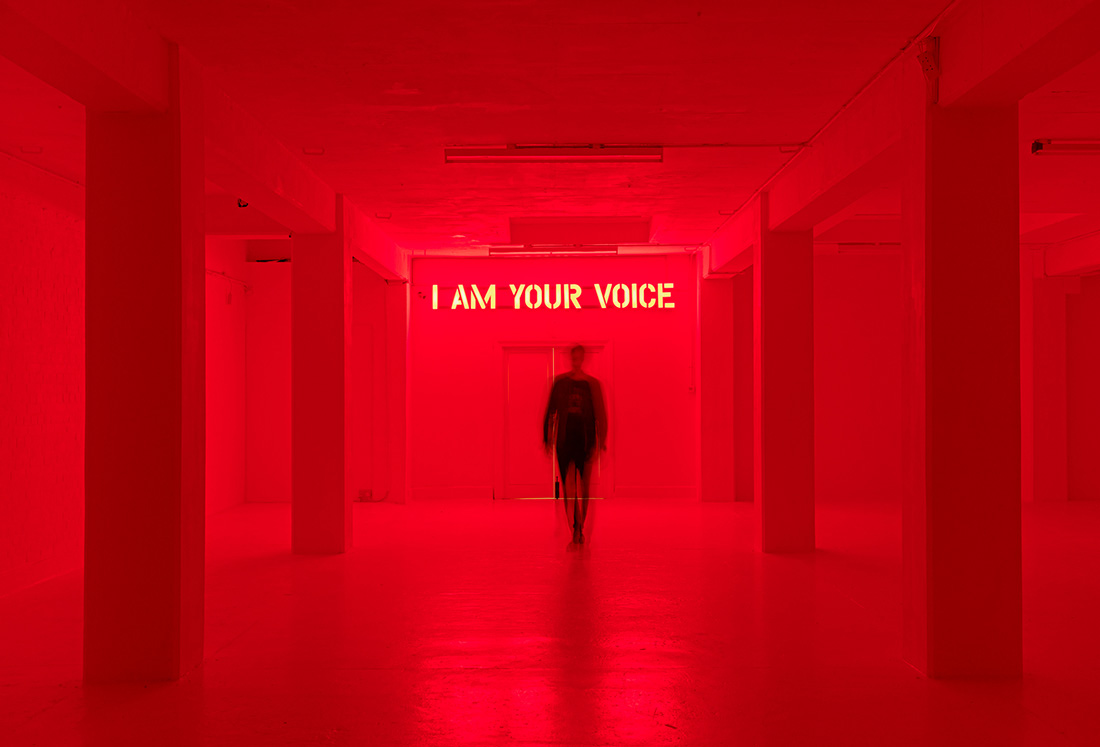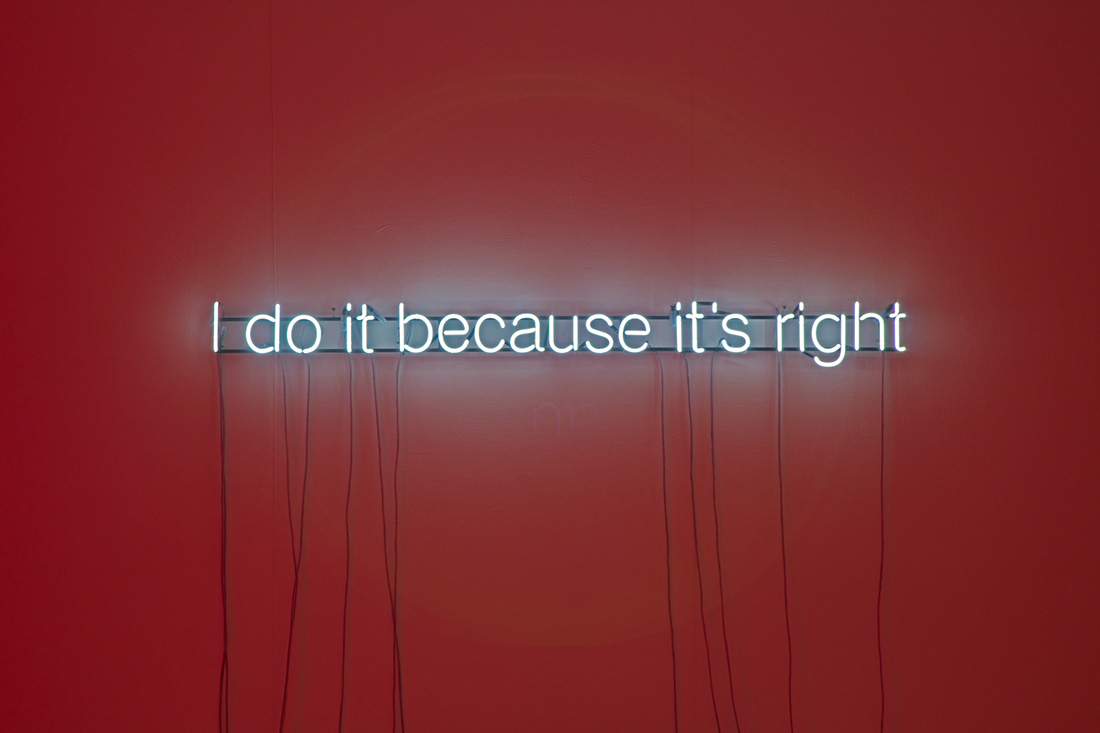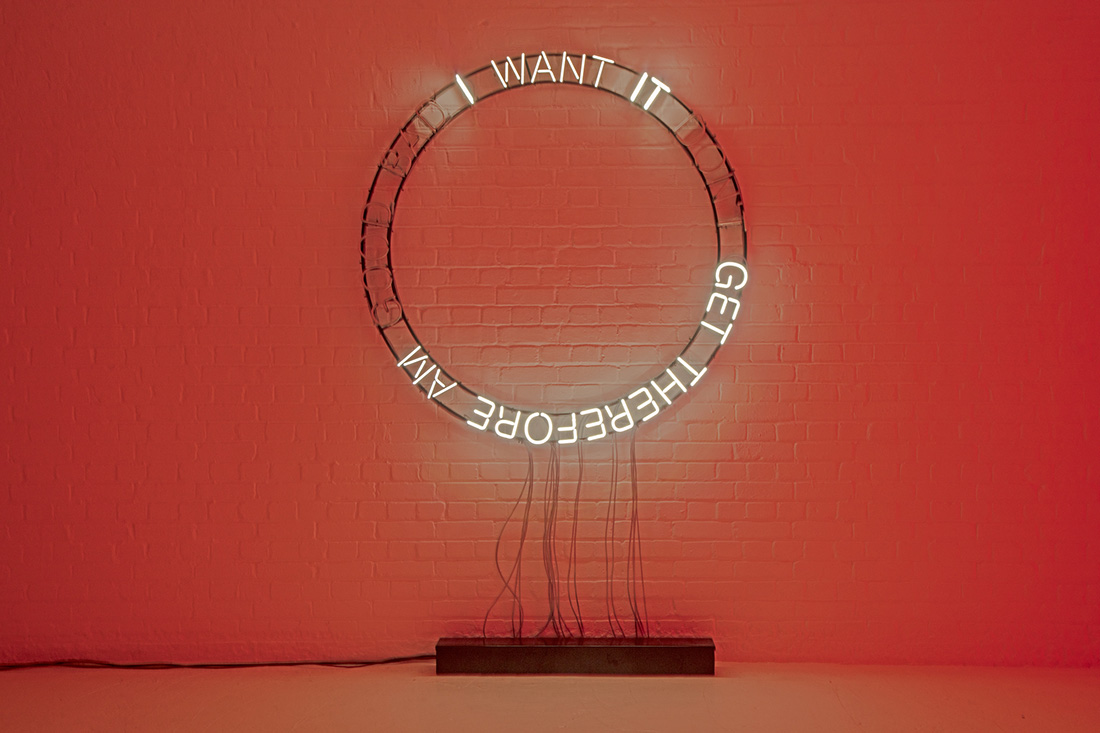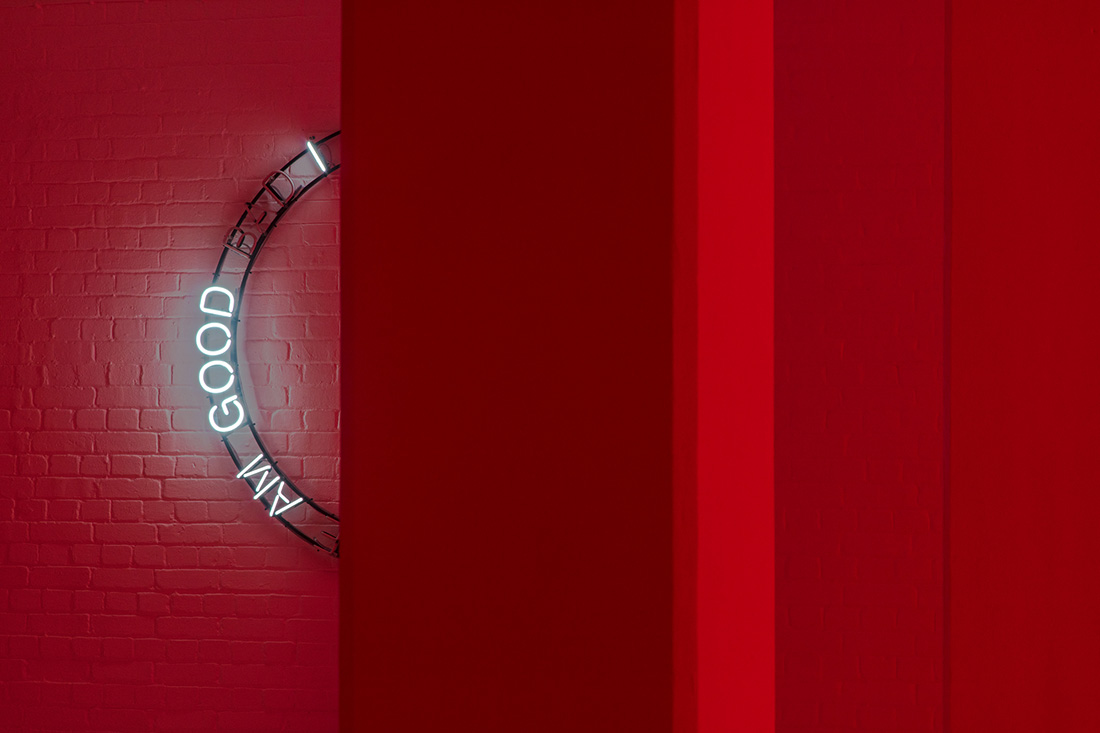Inspired by the 2017 political climate in Britain and elsewhere.
‘I AM YOUR VOICE’ is inspired by the current political climate in Britain and elsewhere. The title of the show is lifted from a quote of Trump’s most powerful and devastating speech, given in July 2016 during the presidential campaign; there he claims that everyday he wakes up determined to deliver a better life to all the people across the nation that have been ignored, neglected and abandoned; that he has visited laid off factory workers and communities crushed by the horrible and unfair American trade deals. He affirms: “These are the forgotten men and women of our country and they are forgotten but they aren’t going to be forgotten any more. These are people who work hard but no longer have a voice. I am your voice.” By addressing the social class and the type of subjectivity traditionally protected and mobilized by left wing politics, Trump discloses in that speech his populist, national-socialist orientation, and by promising political ventriloquism (he, the billionaire, the speculator, will speak for the silent, forgotten people through his mediatised body and power) he involuntarily announces a deeper neglect to come for the poor.
In this context the words “I am your voice” reproduced by one of the two L.E.D. signs is ambiguous and disturbing. Who is the ‘I’ and who’s voice is supposed to be translated?
The other L.E.D. sign reads ‘Have Cake and Eat It’ and illuminates a quote snapped with a telescopic lens made visible by a photo journalist of the note pad carried by an aid to the Conservative vice-chair, Mark Field, exiting a meeting on Brexit held in Downing Street at the end of November 2016. The notes seem to say that Britain would not be able to stay in the single market and would not seek a transitional deal after leaving the EU. Disowned and denied by all the politicians questioned on the subject, these handwritten words, carelessly left in sight, revealed more than anyone could ever distance oneself from. The desire of ‘having it all’ and ‘having it both ways’ is omnipresent during these times of instability and crisis in individuals’ psychology as much as in the way countries are governed and administrated. ‘Have Cake and Eat It’ is illuminated in the Festival of Britain font designed in 1951 by Phillip Boydel. The font was made available for general use in 1952 and became extremely popular in advertising in print and commercial signage, evoking a modern, contemporary Britain, opulent and prosperous for the general imagination.
UK (Burnt/Unburnt), (2011-17) is a map of Great Britain composed with matchsticks planted into the wall and subsequently ignited. The aspect of the shape of the country once burnt becomes a shadow that keeps in itself the marks and the traces of the extinguished fire. Conceived by the artist as the trace of an action that we witness in the aftermath, as a sign of a tragedy that we perceived too late. This work whose form is at the same time a painting (made by the fire), a sculpture (of the remanence of the matches) and a video (showing the action of the burning in the space), acts as a strong disturbance of the white cube: its pungent smell invades the space and incongruously brings a sense of danger and precariousness to the visitors.
The two neon signs present in the exhibition are inspired by the seminal book Knots published in 1972 by R.D. Laing, prominent British psychiatrist and key figure of the anti-psychiatry movement. Untitled (I want it I get it therefore I am good I want it I don’t get it therefore I am bad), Untitled (I do it because it’s right/it’s right because I do it) (2014-17) are animated in sequences and display alternatively the two sentences that compose their title. Expressing a crisis of judgment and a confusion of moral values, the sentences contain ambiguous messages about our desires and the means that we use to fulfill them.
The exhibition is a poetic and emotional exploration of our feelings during instable and trying times, it suggests that the events unfolding across the planet are the cause of the climate change inside our souls.
Text written by Claire Fontaine
‘We The People Are The Work’ is presented by PVAPG (Plymouth Visual Art Programming Group), a partnership between The Gallery at Plymouth College of Art, KARST, Peninsula Arts at Plymouth University, Plymouth Arts Centre and The Box, Plymouth. It is part of Horizon, a collaborative two year programme of visual contemporary arts, funded through Arts Council England’s Ambition for Excellence fund and led by Plymouth Culture.
For more information about Horizon visit plymouth-horizon.co.uk






